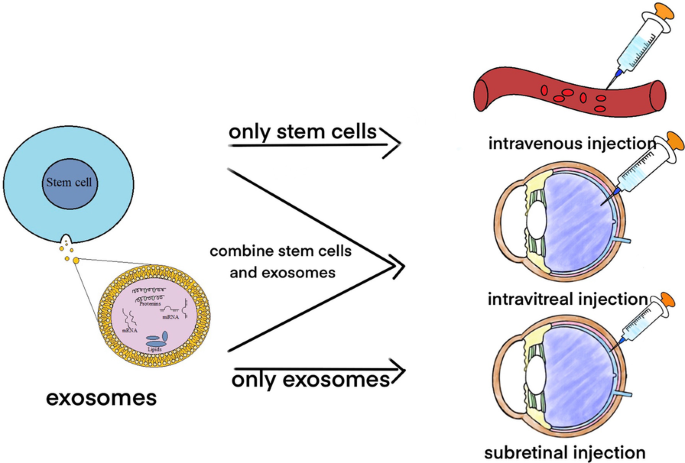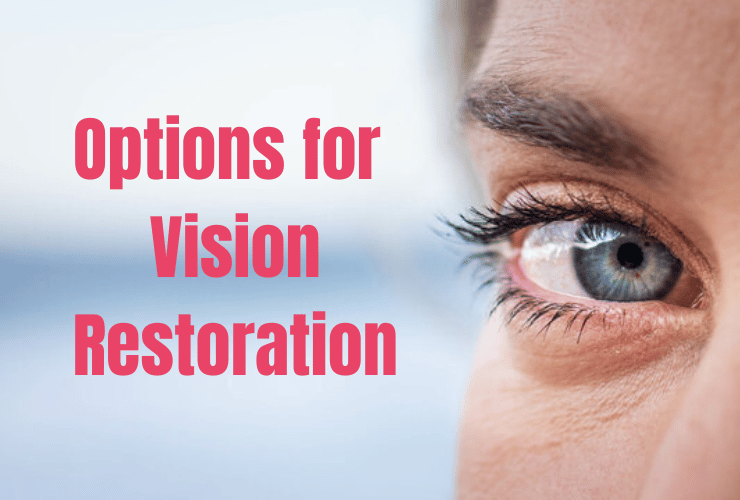Our ability to see the world around us is a precious gift, but vision loss can significantly impact our daily lives. Thankfully, advancements in medical science have brought forth various treatment and surgical options for vision restoration. In this blog essay, we will delve into some of the available options, shedding light on their potential to improve and restore vision.
Eyewear with Corrective Lenses
Corrective lenses offer a straightforward solution for individuals with refractive errors like nearsightedness, farsightedness, or astigmatism. Prescription glasses or contact lenses can effectively compensate for these visual impairments, allowing individuals to see clearly and comfortably.
Medications
Some eye diseases, like glaucoma or macular degeneration, can make it hard to see. Even though medicines can’t completely cure these conditions, they can help with the symptoms and slow the disease’s growth. Eye drops, injections, or oral pills taken ] may be given to treat the causes and make eyesight more stable.
Laser Vision corrections
While laser surgeries like LASIK are primarily aimed at correcting refractive errors rather than vision restoration, they can dramatically improve visual acuity. LASIK involves reshaping the cornea to correct nearsightedness, farsightedness, and astigmatism. Although not applicable to all vision impairments, LASIK has proven to be a popular and effective option for many individuals seeking vision correction.
Cataract Surgery
Cataracts, the clouding of the eye’s natural lens, commonly cause vision loss, particularly in older adults. Cataract surgery is a well-known procedure that includes taking out the cloudy lens and putting in an artificial lens called an intraocular lens (IOL). This surgical intervention not only restores clarity but often enhances vision beyond the level before cataracts develop.
Corneal Transplantation
When the cornea becomes damaged or diseased, a corneal transplant can be a viable option. During this surgery, a healthy cornea from a person who has died is put substituted for the damaged cornea. Corneal transplantation has successfully restored vision in conditions such as corneal scarring or certain genetic disorders affecting the cornea.
Retinal Detachment Surgery
Retinal detachment, a condition where the retina peels away from the back of the eye, requires immediate attention to prevent permanent vision loss. Surgical intervention is typically necessary to reattach the retina and restore visual function. Depending on the severity and location of the detachment, various techniques such as pneumatic retinopexy, scleral buckle, or vitrectomy may be employed.
Vitrectomy
Vitrectomy is a surgery in which the vitreous gel inside a patient’s eye is removed and replaced with a clear fluid. This procedure is commonly employed to treat conditions like macular holes, diabetic retinopathy, or vitreous haemorrhage. By clearing obstructions and allowing light to reach the retina unimpeded, vitrectomy can help restore vision and address associated complications.
Stem Cell Therapy

Although still in the early stages of development and experimental in nature, stem cell therapy holds great promise for vision restoration. Researchers are exploring the potential of using stem cells to repair damaged retinal tissue and regenerate optic nerve cells. While the full potential of this treatment is yet to be realised, it represents a hopeful avenue for individuals with conditions like macular degeneration or optic nerve damage.
Blog Summary
Vision restoration is an area where medical advancements continue to evolve, offering hope and improved quality of life for those with visual impairments. Each option plays a vital role in addressing specific vision-related challenges, from corrective lenses and medications to surgical interventions like cataract surgery or retinal detachment repair. As our understanding of the human eye deepens, innovative approaches like stem cell therapy can potentially revolutionize the field of vision restoration. Consultation with an ophthalmologist or eye specialist is crucial in determining the most suitable treatment or surgery for individual cases, ensuring the best possible outcomes for vision restoration. All the stated vision correction methods are available with some very selected eye hospitals. The eye department at the MAX hospital Bathinda covers almost all of these vision correction procedures using state of the art technology approved by the national and international regulators.

